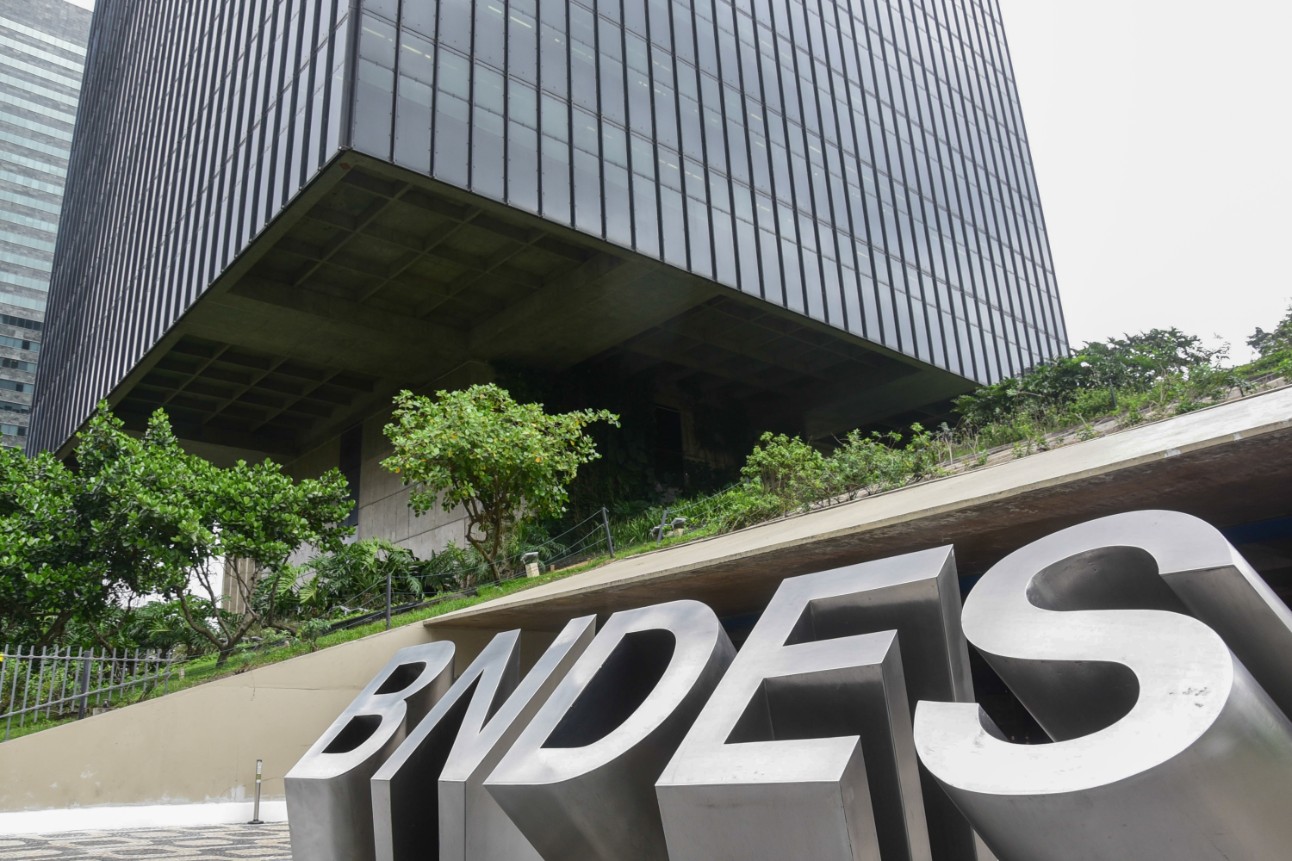The BNDES (National Bank for Economic and Social Development) plans to issue tax-exempt bonds by doubling its credit operations to nearly R$200 billion (US$40 billion) without help from the National Treasury, according to its director of Planning and Project Structuring, Nelson Barbosa.
The former finance minister in Dilma Rousseff’s government, who is now part of BNDES, said the bonds would be linked to development projects in areas where the institution wants to invest, such as energy transition, innovation, and infrastructure.
These assets will also be available to all investor profiles, including individual investors who benefit from income tax exemption.

“One of our goals is to restore the historical size of the BNDES, which means doubling the size of the bank,” Barbosa said in an interview from his office in Brasilia.
“Instead of the Treasury borrowing and passing it on to BNDES, the bank will raise the money.”
The BNDES historically has disbursed about 2% of Brazil’s Gross Domestic Product (GDP) in loans, or R$200 billion (US$38.5 billion) at its current value, according to Barbosa.
It will be necessary to double the volume of credit operations, currently a little under R$100 billion (US$20 billion), until President Luiz Inácio Lula da Silva’s mandate ends.
This time, however, the government wants to avoid past mistakes, including vast injections of public money that have damaged public finances and Brazil’s fiscal credibility.
The BNDES loan portfolio had gradually expanded with Treasury financing during Lula’s first two terms, reaching about R$1 trillion (nearly US$200 billion) under the Rousseff administration, more than that of the World Bank at the time.
Much of the funding supported big companies like state oil giant Petrobras and JBS, which embarked on an ambitious wave of global acquisitions and expansions.
Along with the so-called policy of national champions came allegations that the bank was favoring political allies and handing out generous bonuses to its employees based on the volume of credit operations they closed, leading to suspicions of corruption. Internal investigations by the bank found no irregularities.
Now, the BNDES will direct its funds to specific economic activities necessary to stimulate growth and employment rather than to particular companies.
If the funds benefit a small number of companies in a specific sector, this will be a consequence of the already existing concentration and not a bank strategy, Barbosa said.
“Our focus is more on activities than companies,” he said.
“We want to stimulate innovation, reindustrialization, artificial intelligence.”
AMERICANAS, SUBSIDIES
The government is still measuring the impact of the implosion of retailer Americanas SA on the country’s credit market, Barbosa said.
The company filed for judicial reorganization last month after revealing a R$20 billion (US$3.8 billion) accounting inconsistency in its balance sheet.
“For now, it is a liquidity crisis concentrated in the retail sector that can be solved by the central bank and the banking system itself,” he said.
Still, the government has detected a credit slowdown that may or may not be structural, he said, adding that the BNDES will intervene if necessary, offering lines of credit for micro, small, and medium-sized companies, as well as those that need working capital.
The BNDES is also considering charging different interest rates depending on the client’s profile. In only some cases would the rate be subsidized?
“Subsidies should not be demonized, but we need to seek their optimal size and use them effectively and transparently,” Barbosa said, citing sectors such as innovation, climate sustainability, and energy transition as potential candidates.
“If there is a BNDES subsidy, it will be done transparently and for some selected sectors.”
With information from Bloomberg

